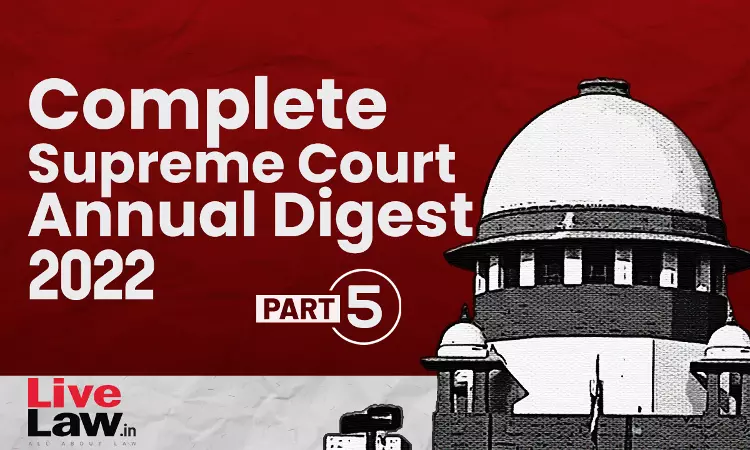- Home
- /
- Top Stories
- /
- Complete Supreme Court Yearly...
Complete Supreme Court Yearly Digest Part-5
LIVELAW NEWS NETWORK
16 Feb 2023 11:27 AM IST
Constitution of Special CourtsConstitution of Special Courts - The State and Central Governments will have to comply with the directions issued by this Court from time to time with respect to constitution of special courts. The High Court in consultation with the State Governments will have to undertake an exercise on the need for the special courts. The vacancies in the position of...
Next Story



